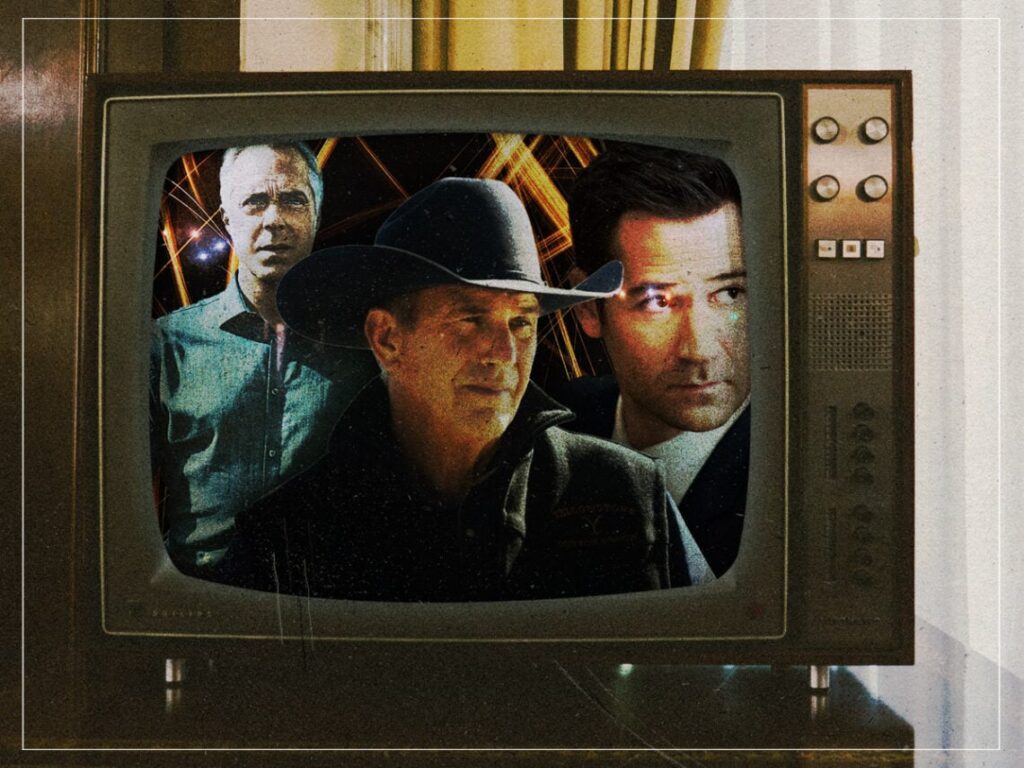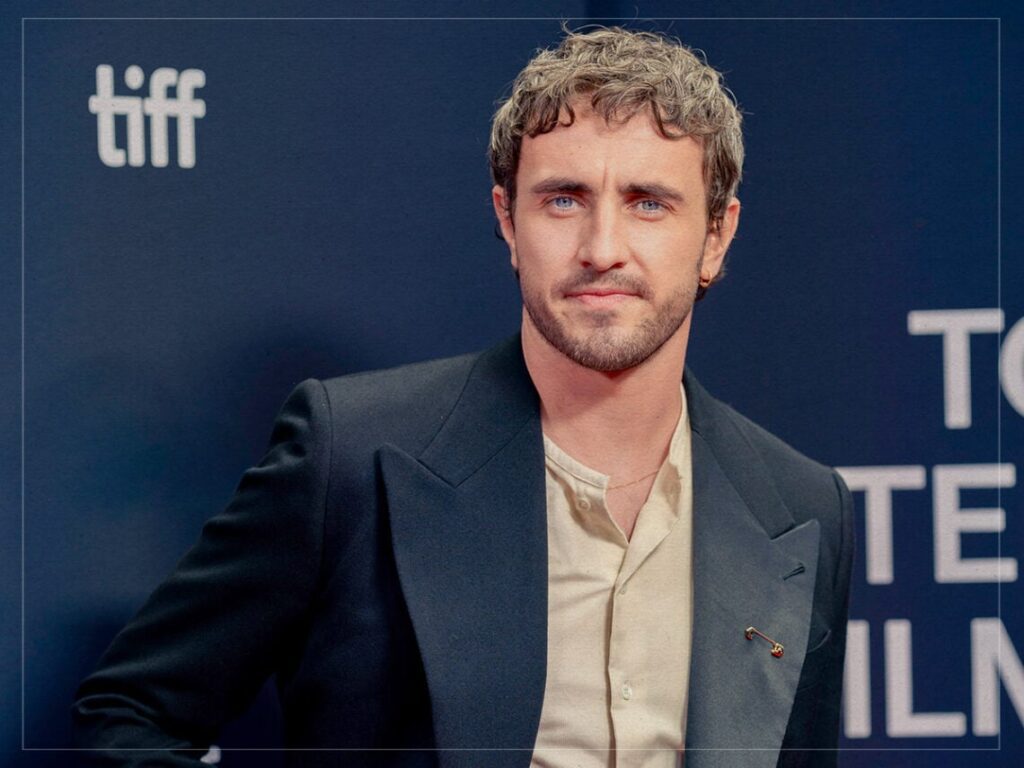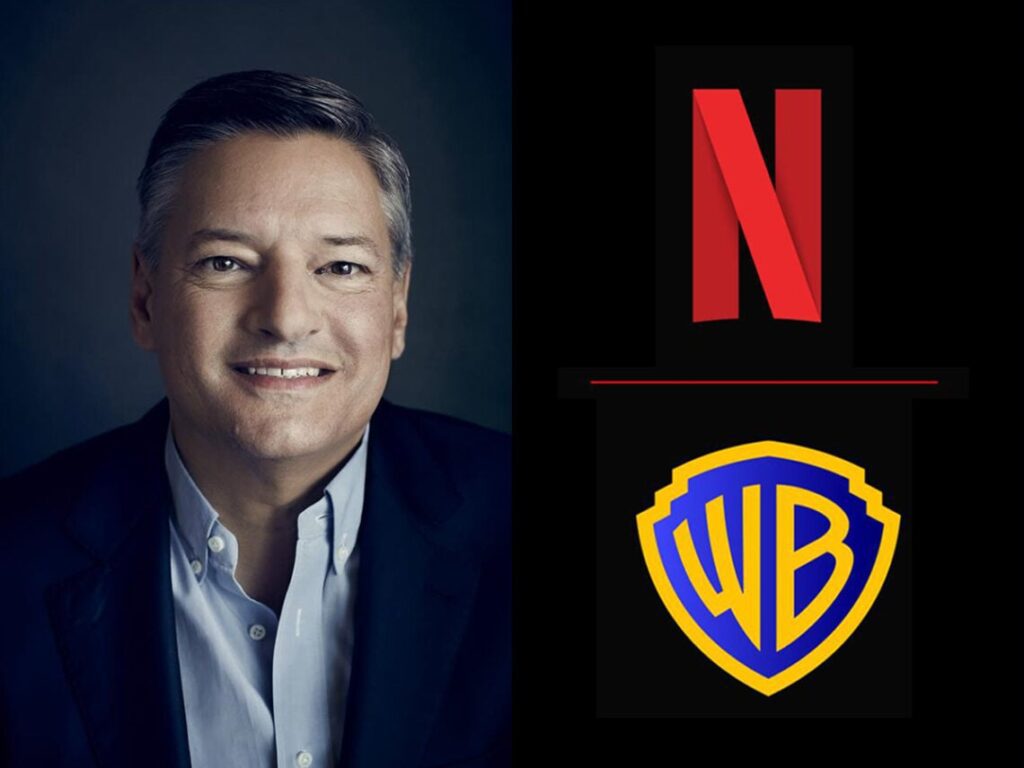How ‘Dad TV’ became one of television’s most potent weapons
 Posted On
Posted On
(Credits: Far Out / Paramount Plus / Netflix / Amazon Studios)
As television continues to evolve, new offshoots will continue to emerge that will only extend a ‘Golden Age’ that’s already been running for over two decades at this point. One of the most potent is the advent of ‘Dad TV’, a catch-all term describing a certain type of show that’s almost always guaranteed success.
Since the dawn of the 21st century, prestige drama has continued to thrive. These shows involve a sprawling ensemble cast, feature labyrinthine plots that often take years to resolve, incorporate relevant and prescient social, societal, or political themes into their framework, and require audiences to pay the utmost attention to extract the maximum entertainment and emotional impact.
There are also blockbuster-sized hits that are either based on or indebted to a major cultural property, which are largely sold on the back of either their branding or ability to seize headlines. The Last of Us, Fallout, Stranger Things, One Piece, and The Boys are among the series that fit that remit, and in the broadest sense, those are the two forms of TV that largely comprise the small screen’s biggest titles.
On a tier slightly below that, but still above the never-ending crop of procedurals, sitcoms, and medical dramas, is where ‘Dad TV’ exists. For the most part, shows that don’t require undivided attention revel in their superficiality, make for an undemanding watch, and feature a solitary male, middle-aged protagonist who works in either law enforcement, the military, or law.
Prime Video has become especially proficient in the realm of ‘Dad TV’, with Titus Welliver’s Bosch the streaming service’s longest-running original series ever at seven seasons. Spinoff Bosch: Legacy has been renewed for a third, and despite the perceived downgrade of being bumped off to the Freevee add-on, it still ended up as its most-watched episodic original ever.
Speaking of Prime Video, what’s the streamer’s biggest current hit? Alan Ritchson’s Reacher is almost the epitome of ‘Dad TV’. The hero is a handsome, burly fellow who kicks ass, saves the day, and knows when and where to drop a one-liner as and when required. John Krasinski’s Jack Ryan and Chris Pratt’s The Terminal List are among Amazon’s other major victories in terms of viewership, and is it a coincidence that much like Reacher, they each feature a leading man in their 40s with military or governmental experience thwarting a conspiracy? No, it absolutely is not.
Netflix’s The Lincoln Lawyer is based on a series of novels written by Bosch creator Michael Connelly, and it goes without saying the legal version of ‘Dad TV’ is equally as popular. What did network CBS tout as its most-watched original series in almost two decades when it was quickly renewed for a second season after premiering in February 2024? The answer is Tracker, which naturally revolves around a protagonist played by a 40-something actor who doubles as a master survivalist.
Taylor Sheridan built an entire empire on the back of ‘Dad TV’, with Yellowstone generating spinoffs 1883 and 1923, not to mention Sylvester Stallone’s grizzled Tulsa King, the star-studded Special Ops: Lioness, and David Oyelowo’s Lawmen: Bass Reeves, the first two of which have been renewed for additional seasons. Gangsters, special forces operators, and hunting down rogue outlaws; it’s the multi-faceted nature of the bespoke subgenre in all of its forms, and viewers can’t seem to get enough.
Apple TV’s For All Mankind does ‘Dad TV’ with a sci-fi angle, imagining an alternate history where the Soviets beat America to the Moon, and the space race never ended. If there are any dads out there who’d prefer their alt-world favourites to be rooted in World War II instead, then ‘Dad TV’ already has that covered with The Man in the High Castle.
Of course, being a dad isn’t a requirement to enjoy ‘Dad TV’, something that’s reflected in the numbers. Not every major series in the ‘Golden Age’ has to be making a blatant play for awards or seeking to seize the cultural zeitgeist, which has allowed the shows where dudes in their 40s, 50s, and occasionally 60s and beyond to swoop in and take a seat at the top table. The moniker was designed to be somewhat disparaging, but it’s becoming increasingly clear that it’s one of the easiest ways to nail down an episodic hit where there’s more content on offer than ever before.
[embedded content]


